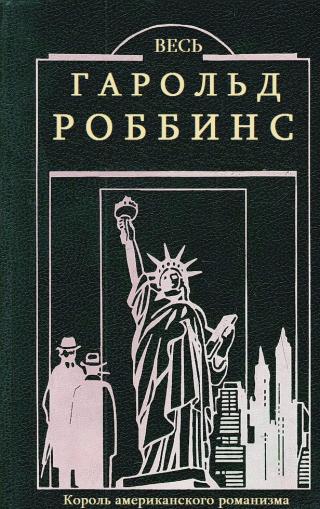Danny Fischer's unfulfilled dreams
Just like the Turkish writer Orhan Pamuk writes in his collection of essays "Other Colors", I also feel a need of a “well-written book” almost daily.
“Nothing gives me so much happiness and nothing binds me so closely to life as reading a passage from some rich, deep novel about the world that I could believe in " - Orkhan Pamuk writes.
A few days ago, the Russian friend mentioned to me the name of American writer Harold Robbins (author of "The Carpetbaggers") as an example of fascinating storyteller - however, later it turned out that my friend had read this author 25 years ago, - and then I decided to try all these excellent epithets given to this master of the word.
So I have read the novel "A Stone for Danny Fischer" by Harold Robbins.
First of all, I want to dwell on the time and place of the novel action since each book is usually a journey through time and space, although sometimes the world of a book can be completely fictional, and the hero can move to a kind of future that did not yet exist in human history.
In general, there are 2 features regarding my perception of books from modern foreign reality.
Firstly, as a person who grew up behind the Iron Curtain and therefore for a long time was deprived of quite the usual joys of capitalism such as trendy music, lawn mowing in adolescence, visiting McDonald's and so on - which can easily be seen from a careful reading of my book "I Am Becoming a Woman" https://www.amazon.com/gp/product/B08CXYPPW3/ - I, out of old habit, still draw attention to these minor details in the books about western life.
Secondly, it is always interesting for me to make sure that those elements of infrastructure that are described in the text of the book - cafes, concert halls, museums, and so on - really exist in real life.
In general, books often become a kind of guides to those real places where the action inventedl by the author took place - so Dan Brown's Inferno is a guide to Florence, Pamuk's Black Book is a guide to Istanbul, a series of Jo Nesbe's detective novels about Harry Hole - Oslo guides and so on. Earlier, Donna Tartt's The Goldfinch had become my virtual guide to several New York neighborhoods, and The Time Traveler's Wife - to Chicago.
In this book, the protagonist Danny Fischer first lives in the newly built-up area of Brooklyn, and then moves to Stanton Street on the East Side.
As for era, the novel A Stone for Danny Fischer describes a colorful stage in the history of the United States - 1925-1944. The reader meets many interesting everyday details from the life of people of that time - for example, prohibition and clandestine shipments of scarce cigarettes during the war.
An interesting detail: this book was published in the same year - 1952 - as the novel of Harry Gray that became the model for the iconoc film Once Upon a Time in America by Sergio Leone. And it was exactly this film that came to my mind while I was reading describing of the teenager life of Danny Fischer on Stanton Street in the East End, where all the inhabitants existence was subordinated to some representatives of a clandestine business like bookmakers and so on with their luxuriously furnished apartments against the background of universal destitution.
When it came to taking shelter from bandits on Coney Island Beach, I remembered Woody Allen's "Wonder Wheel" (2017).
The powerful Italian mafioso is also mentioned, without which not a single issue was resolved in the City Hall of New York.
As far as Harold Robbins' writing style goes, I can't say I as a reader really like this literary manner, but it's probably a pretty good option for this kind of events he describes.
Momentary feelings are described interspersed with how the hero looked somewhere, what he saw, where he put his hands, and so on.
The main hero Danny Fischer sometimes appears to be damn noble and has a touching affection for his childhood home in Brooklyn.
He doesn't want to remain just a part of a faceless pover crowd. Constant need in money forces the guy to become exactly what life makes him become, although sometimes something good in him resists this.
In general, it seems that modern literature much more fits the tastes of sophisticated сontemprorary reader than literature of 50s.
